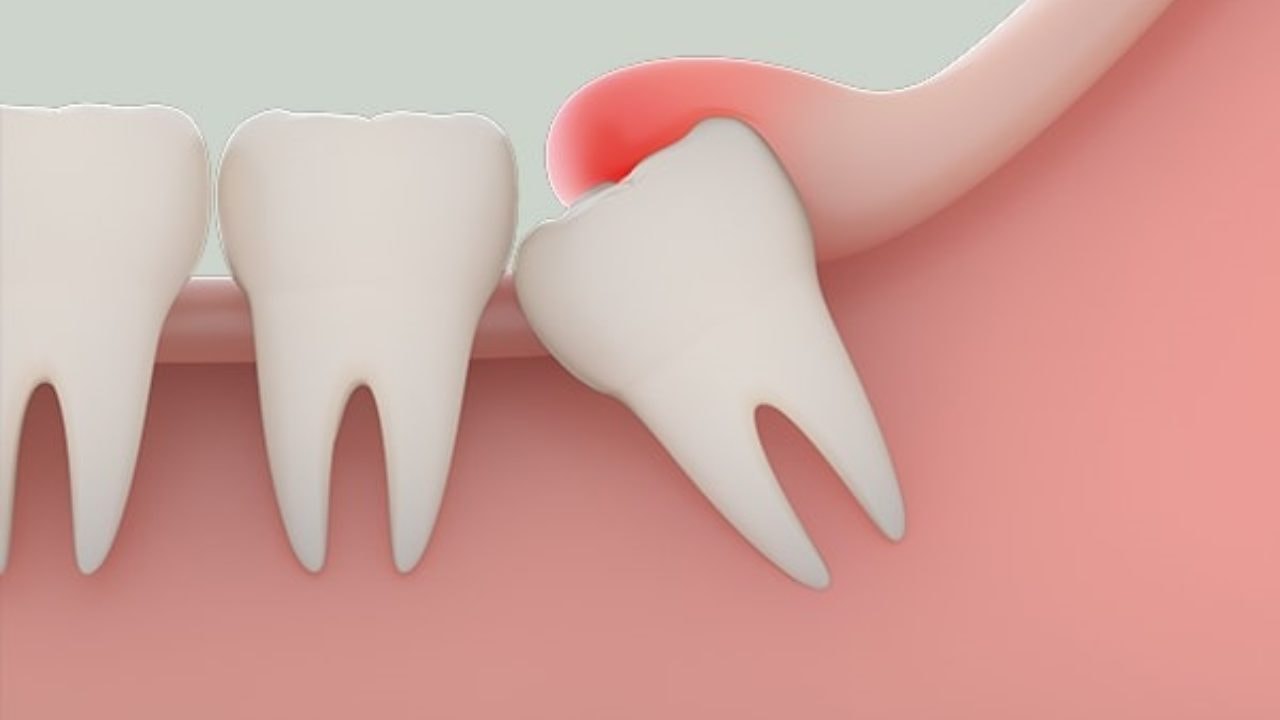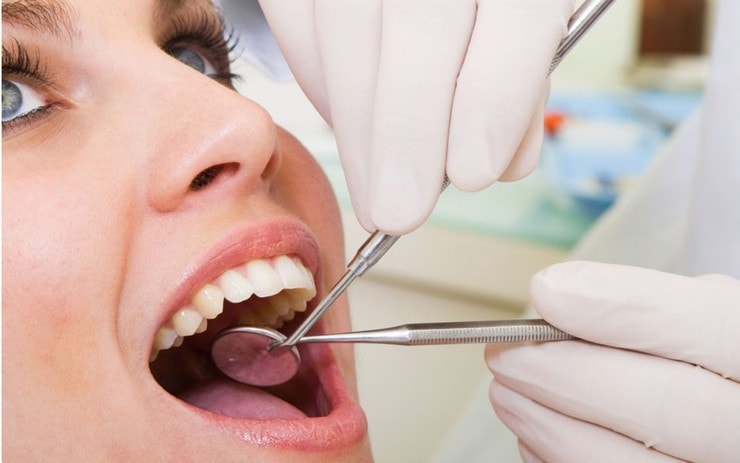What complications can occur with wisdom teeth extraction?
Wisdom teeth, also known as number 8 teeth, often grow very late, causing complications that cause discomfort for the patient. Wisdom tooth extraction is the solution chosen by many people to end the pain and risks caused by this type of tooth.
When do wisdom teeth need to be removed?
Wisdom teeth are located at the back of the jaw, commonly known as wisdom teeth and they start to develop when we enter adulthood (from 17 to 25 years old). Wisdom teeth can be considered if they cause the following problems:
- When wisdom teeth grow, the patient will have a lot of pain, pressure on tooth number 7, repeated infections, cysts...
- In cases where the wisdom tooth has not caused complications, X-ray images show that when the wisdom tooth grows, it can affect the seventh tooth.
- Impacted wisdom teeth cause gingivitis and persistent pain, only detected by X-ray. The shape of the wisdom teeth is abnormal (deformed, small), often gets food stuck, and there is a risk of tooth decay and periodontal disease due to wisdom teeth.
- If the wisdom tooth is decayed or has periodontal disease, it should be removed.
- In case you want to have braces, dentures or need orthodontics, or the wisdom tooth is the cause of other systemic diseases... you should also consider extraction.
Therefore, whether to extract wisdom teeth or not depends on the doctor's examination and clinical tests.

What complications does wisdom tooth extraction cause?
This is a question that many people fear when they want to have their wisdom teeth extracted. Wisdom tooth extraction is quite common and nowadays complications rarely occur thanks to more modern technology. However, wisdom tooth extraction still has some potential risks as follows:
- Infection and inflammation of the surgical tooth socket: Infection causes dull pain in the jaw and gums, bad odor, white or yellow pus discharge from the wisdom tooth socket, high fever, prolonged swelling and pain... This may be because after tooth extraction, the patient does not know how to properly clean and care for their teeth.
- Sepsis: If an infected tooth socket is not treated, it can lead to blood infection with symptoms such as chills, high fever, rapid, weak pulse...
- Damaged related nerves: Symptoms of nerve damage due to wisdom tooth extraction include numbness and itching of the tongue, teeth, lower lip and gums. These symptoms usually occur in a relatively short period of time, and are rarely permanent.
- Wisdom tooth extraction can cause some complications if the patient does not take proper care of their hygiene.
In general, to prevent and minimize the risk of complications after wisdom tooth extraction, patients need to be carefully examined before surgery. At the same time, strictly follow the instructions for oral care after extraction.

What should I pay attention to after wisdom tooth extraction?
Below are some important notes to remember when extracting wisdom teeth:
- After tooth extraction, you should not talk or move your jaw too much, because it will cause more bleeding. In addition, do not use your fingers, tongue, or any objects or tools to touch the wound.
– After wisdom tooth extraction, do not spit to avoid damaging the forming blood clot. It is best to swallow saliva.
- After wisdom tooth extraction, to reduce swelling and stop bleeding quickly, you can apply ice to the outside of the cheek. Apply for 10 - 20 minutes each time.
- Use anti-inflammatory and pain-relieving drugs: Wisdom tooth extraction will cause jaw swelling and pain, so you should take anti-inflammatory and pain-relieving drugs as prescribed by your doctor.
- After wisdom tooth extraction, you should clean your mouth with warm salt water: Rinse your mouth gently and slowly, after eating and before going to bed. Within the first 24 hours after tooth extraction, you can brush your teeth and remember to clean your tongue. However, you should avoid the area where the tooth was just extracted.
- Reasonable rest regimen: In the first 2 days after tooth extraction, it is best to not participate in physical activities, just rest, avoid stress and keep your head slightly higher than normal.
Diet after wisdom tooth extraction
- After wisdom tooth extraction, you should eat soft, mushy foods that are easy to chew and swallow. Avoid hard foods, foods that are too hot or too cold, crunchy foods, foods that stick to your teeth, alcoholic beverages, caffeine, soft drinks... because they will damage the wound.
- After wisdom tooth extraction, you should not skip meals and need to supplement adequate nutrition. After a few days, you should gradually switch from soft, liquid foods to more solid and hard foods.
- After wisdom tooth extraction, you should not drink alcohol or smoke for at least 24 hours after tooth extraction.
In summary, although wisdom tooth extraction is a common surgery performed by many people, it still has certain potential risks. If any abnormality occurs after extraction, contact your doctor and have a check-up immediately. It is important to choose a reputable medical facility to perform the procedure, and after surgery, you need to strictly follow the doctor's instructions to avoid the risk of dangerous complications./.

